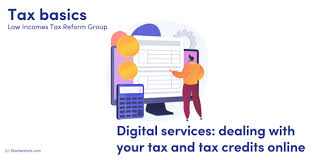The Evolution of Online Services
In today’s digital age, the internet has revolutionised the way we interact, communicate, and conduct business. The emergence of online services has transformed various aspects of our lives, offering convenience, accessibility, and efficiency like never before.
One of the key advantages of online services is the ease of access they provide. With just a few clicks, users can access a wide range of services from the comfort of their homes or on-the-go through their mobile devices. Whether it’s shopping, banking, or booking appointments, online platforms have made these tasks quick and convenient.
Moreover, online services have broken down geographical barriers, allowing people to connect and collaborate across borders effortlessly. From video conferencing tools to social media platforms, the internet has facilitated global communication and collaboration on an unprecedented scale.
Businesses have also capitalised on online services to reach a wider audience and streamline their operations. E-commerce platforms enable companies to showcase their products to a global market and facilitate secure online transactions. Additionally, cloud-based services have revolutionised data storage and management, offering scalability and flexibility to businesses of all sizes.
As technology continues to advance, the landscape of online services is constantly evolving. Innovations such as artificial intelligence, blockchain technology, and Internet of Things (IoT) are reshaping the way we interact with online platforms and enhancing user experiences.
While online services offer numerous benefits, it is essential for users to remain vigilant about data security and privacy concerns. With cyber threats on the rise, safeguarding personal information and practising safe online habits are crucial in ensuring a secure digital experience.
In conclusion, the evolution of online services has undoubtedly transformed the way we live and work. From enhancing convenience to fostering global connectivity, the internet continues to be a powerful tool that shapes our daily lives in profound ways.
Common Questions About the Term ‘Online’ Explained
- What is online with example?
- What is the Odia of online?
- What does it mean being online?
- What is the derivation of word online?
- Is online one or two words?
- How do you spell online or on line?
- Is online one word?
- What is online and example?
What is online with example?
Online refers to the state of being connected to the internet or a network, allowing users to access information, services, and resources through digital platforms. An example of being online is when an individual uses a web browser on their computer or mobile device to browse websites, check emails, or engage in social media activities. Being online enables seamless communication, online shopping, remote working, and a plethora of other activities that have become integral parts of modern life in the digital age.
What is the Odia of online?
The term “online” refers to the state of being connected to the internet or a network, allowing individuals to access information, services, and resources through digital platforms. In the context of modern technology, being “online” signifies the ability to communicate, conduct transactions, and engage with content in real-time over the internet. It has become an integral part of our daily lives, enabling seamless connectivity and access to a vast array of online services and opportunities.
What does it mean being online?
Being online refers to the state of being connected to the internet or a network, allowing individuals to access and interact with digital resources, services, and information. When someone is online, they can communicate with others through various online platforms, engage in activities such as browsing websites, sending emails, or participating in virtual communities. Being online enables individuals to stay informed, entertained, and connected in today’s digital world where connectivity plays a crucial role in our daily lives.
What is the derivation of word online?
The term “online” originates from the combination of two words: “on” and “line.” The word “on” signifies being in a state of activity or operation, while “line” refers to a connected path or route. When these two words are merged, they form the concept of being connected or active on a specific pathway, such as the internet. Therefore, the derivation of the word “online” encapsulates the idea of being engaged or connected to a network or system, typically through digital means.
Is online one or two words?
The question of whether “online” should be written as one word or two is a common query among writers and language enthusiasts. The term “online” is typically used as a compound word when referring to activities or services conducted over the internet. While some style guides may prefer “on-line” as two separate words, the trend in modern usage favours the closed form “online” as a single word. Ultimately, consistency in writing style within a specific context or publication is key when deciding on the preferred usage of “online.”
How do you spell online or on line?
The frequent question regarding the spelling of “online” or “on line” often arises due to the evolving nature of language in the digital era. The correct and widely accepted term is “online,” which refers to being connected to the internet or available through a computer network. The single word form, “online,” has become standard usage in modern English, reflecting the seamless integration of technology into our daily lives. It is important to note this spelling distinction to ensure clear and accurate communication in online contexts.
Is online one word?
The question of whether “online” is one word or two is a common query among English language enthusiasts. In current usage, “online” is typically considered to be a single word when referring to activities or services conducted over the internet. It has become widely accepted as a compound word that conveys the concept of connectivity and digital presence. Therefore, in most contexts, “online” is recognised as a unified term rather than two separate words.
What is online and example?
Online refers to being connected to the internet or a network, allowing users to access information, services, and resources through digital platforms. An example of being online is browsing the web using a web browser on a computer or mobile device. When you are online, you can search for information, shop for products, connect with others through social media, or stream videos and music. Being online enables individuals to communicate, collaborate, and engage with content from virtually anywhere in the world, making it an integral part of modern-day life.


